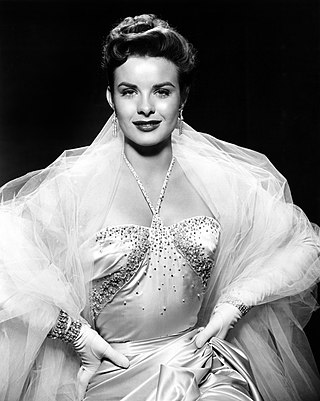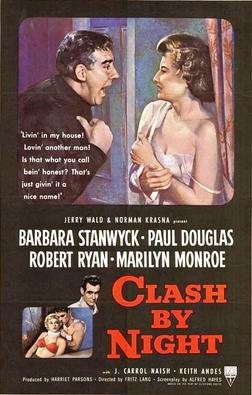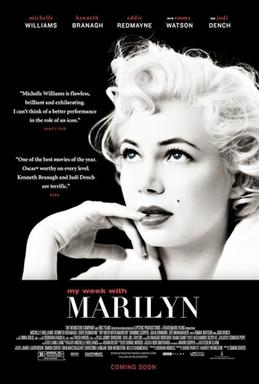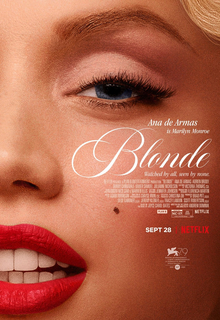
Marilyn Monroe was an American actress and model. Known for playing comic "blonde bombshell" characters, she became one of the most popular sex symbols of the 1950s and early 1960s, as well as an emblem of the era's sexual revolution. She was a top-billed actress for a decade, and her films grossed $200 million by the time of her death in 1962. Long after her death, Monroe remains a pop culture icon. In 1999, the American Film Institute ranked her as the sixth-greatest female screen legend from the Golden Age of Hollywood.

Pierce Brothers Westwood Village Memorial Park & Mortuary is a cemetery and mortuary located in the Westwood Village area of Los Angeles. It is located at 1218 Glendon Avenue in Westwood, with an entrance from Glendon Avenue.

A pin-up model is a model whose mass-produced pictures and photographs have wide appeal within the popular culture of a society. Pin-up models are usually glamour models, actresses, and fashion models whose pictures are intended for informal, aesthetic display, such as being pinned onto a wall. Beginning in the 1940s, pictures of pin-up girls were also known as cheesecake in the U.S.

Eerie, Indiana is an American horror science fiction television series that originally aired on NBC from September 15, 1991, to December 9, 1993. The series was created by José Rivera and Karl Schaefer, with Joe Dante serving as creative consultant.

Gentlemen Prefer Blondes is a 1953 American musical comedy film directed by Howard Hawks and written by Charles Lederer. The film is based on the 1949 stage musical of the same name, which in turn is based on the 1925 novel of the same name by Anita Loos. The film stars Jane Russell and Marilyn Monroe, with Charles Coburn, Elliott Reid, Tommy Noonan, George Winslow, Taylor Holmes and Norma Varden in supporting roles.

The Seven Year Itch is a 1955 American romantic comedy film directed by Billy Wilder, from a screenplay he co-wrote with George Axelrod from the 1952 three-act play. The film stars Marilyn Monroe and Tom Ewell, who reprised his stage role. It contains one of the most iconic pop-culture images of the 20th century – Monroe standing on a subway grate as her white dress is blown upwards by a passing train. The titular phrase, which refers to a waning interest in monogamous relationship after seven years of marriage, has been used by psychologists.

Elizabeth Jean Peters was an American film actress. She was known as a star of 20th Century Fox in the late 1940s and early 1950s, and as the second wife of Howard Hughes. Although possibly best remembered for her siren role in Pickup on South Street (1953), Peters was known for her resistance to being turned into a sex symbol. She preferred to play unglamorous, down-to-earth women.

Niagara is a 1953 American film-noir thriller film directed by Henry Hathaway, produced by Charles Brackett, and written by Brackett, Richard L. Breen and Walter Reisch. The film stars Marilyn Monroe, Joseph Cotten, Jean Peters, and Max Showalter. It was one of 20th Century Fox's biggest box-office hits that year.

Sheree North was an American actress, dancer, and singer, known for being one of 20th Century-Fox's intended successors to Marilyn Monroe.

Clash by Night is a 1952 American film noir drama directed by Fritz Lang and starring Barbara Stanwyck, Paul Douglas, Robert Ryan, Marilyn Monroe and Keith Andes. The film is based on the 1941 play by Clifford Odets, adapted for the screen by writer Alfred Hayes. It is the first major film to credit Monroe before the title, albeit with fourth billing.
Josette Patricia Simon is a British actor. She trained at the Central School of Speech and Drama in London and played the part of Dayna Mellanby in the third and fourth series of the television sci-fi series Blake's 7 from 1980 to 1981. On stage, she has appeared in Royal Shakespeare Company (RSC) productions from 1982, playing Ariel in The Tempest, to 2018 when she was Cleopatra in Antony and Cleopatra. The first black woman in an RSC play when she featured in 1982, Simon has been at the forefront of colour-blind casting, playing roles traditionally taken by white actors, including Maggie, a character that is thought to be based on Marilyn Monroe, in Arthur Miller's After the Fall at the National Theatre in 1990.

Jeffrey Dean Morgan is an American actor. He is best known for playing the character Negan in the AMC horror drama series The Walking Dead (2016–2022), a role he reprised in The Walking Dead: Dead City (2023–present), for which he has received critical acclaim. He has also appeared in such television roles as John Winchester in the CW fantasy horror series Supernatural, Denny Duquette in the ABC medical drama series Grey's Anatomy (2006–2009), Jason Crouse in the CBS political drama series The Good Wife (2015–2016), the Comedian in the superhero film Watchmen (2009), as well as film roles including William Gallagher in P.S. I Love You (2007), Clay in The Losers (2010), Sgt. Maj Andrew Tanner in Red Dawn (2012), and Agent Harvey Russell in Rampage (2018).
"Diamonds Are a Girl's Best Friend" is a jazz song introduced by Carol Channing in the original Broadway production of Gentlemen Prefer Blondes (1949), with music by Jule Styne and lyrics by Leo Robin.
American actress Marilyn Monroe's life and persona have been depicted in film, television, music, the arts, and by other celebrities.

Wonder Boys is a 2000 comedy-drama film directed by Curtis Hanson and written by Steve Kloves. An international co-production between the United States, the United Kingdom, Germany, and Japan, it is based on the 1995 novel of the same name by Michael Chabon. Michael Douglas stars as professor Grady Tripp, a novelist who teaches creative writing at a university but has been unable to finish his second novel.

Roy Smiles is a singer-songwriter & playwright from Ealing, London. He is also an occasional actor.
Sean Whitesell was an American film and television actor, writer and producer.
John Patrick Whitesell is an American television and film director. He has directed numerous films such as Calendar Girl, Big Momma's House 2 and Holidate. He started his career as a film director in 1993.

My Week with Marilyn is a 2011 biographical drama film directed by Simon Curtis and written by Adrian Hodges. It stars Michelle Williams, Kenneth Branagh, Eddie Redmayne, Dominic Cooper, Julia Ormond, Emma Watson, and Judi Dench. Based on two books by Colin Clark, it depicts the making of the 1957 film The Prince and the Showgirl, which starred Marilyn Monroe (Williams) and Laurence Olivier (Branagh). The film concerns the week during the shooting of the 1957 film when Monroe was escorted around London by Clark (Redmayne), after her husband Arthur Miller had returned to the United States.

Blonde is a 2022 American biographical psychological drama film written and directed by Andrew Dominik, based on the 2000 novel of the same name by Joyce Carol Oates. The film is a fictionalized take on the life and career of American actress Marilyn Monroe, played by Ana de Armas. The cast also includes Adrien Brody, Bobby Cannavale, Xavier Samuel, and Julianne Nicholson.















